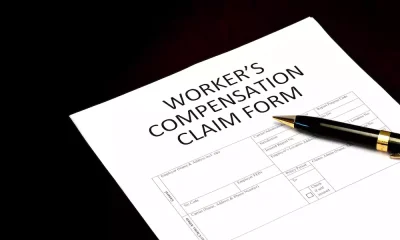Insurance
Is Your Disability Covered? Know Your State WCL
Disabled workers often face a set of challenges which their colleagues may not even be able to comprehend, much less empathize with.
Even when they work with an employer who provides them with the support they need to do their job to the best of their ability despite their disabilities be they visible or invisible.
Even though all employees have the right to employment without being discriminated against on the basis of disability, they may not have the same provision in place if they leave their home state to pursue a job elsewhere.
Different states have different rules and while you have federal protection against discrimination, some different states have subtly different attitudes towards individual disabilities especially when it comes to workers’ compensation.
Whether you have an existing disability or want to ensure that you’ll have the right to receive workers’ compensation if you suffer a debilitating injury at work it’s worth familiarizing yourself with the disparity between states (and even between organizations).
Workers’ comp is mandatory in all US states… except one!
You could be forgiven for assuming that workers’ compensation is a right for employees in all 50 states and while it is mandatory in most it is not mandatory in Texas.
Of course, that does not mean that a Texan employer will not necessarily award workers’ compensation to their employees, nor does it necessarily mean that an employer’s workers’ comp provision will cover your work-related disability outside of Texas.
This is because different employers have different forms of insurance and thus there may be a disparity between local law and employer policy.
It’s highly likely that an employer in Texas will have a worker’s comp provision in place, but employees will have the option to opt out of it. These people are referred to as “nonsubscribers”.
Where policy meets insurance
Even in states where workers’ comp is mandatory it is not entirely state run. In many cases worker’s comp provision is a combination of state legislature and private insurance policies.
The only states that rely on entirely state-run programs for workers’ compensation are North Dakota, Ohio, Washington, and Wyoming.
Businesses can purchase insurance for compulsory and non compulsory components meaning that two employers in the same state may offer different workers’ comp provisions which cover a different range of disabilities.
Workers’ comp: Know where you stand
As you can see, it’s important to know where you stand in terms of workers’ comp. Read this article by Terry Katz & Associates: what disabilities covered under workers comp laws. There are two ways in which you can (and should) check this out further.
Check employer’s obligations
First, you should check your employer’s (or prospective employer’s) legal obligations by familiarizing yourself with your new state’s workers’ comp laws (WCL). This will outline the bare minimum that your employer is entitled to offer.
However, their insurance provision may be in excess of this legal minimum so even if you have an existing disability that is not covered by local WCL this does not necessarily mean that it’s not covered by your employer.
Ask what disabilities are covered
This is why you should know exactly where you stand with your employer before you join the company. Ask what specific disabilities are covered by their workers’ comp insurance policy. This may be in their employee handbook or their Human Resources department may be able to help.









